With its unique mix of paddy fields, barracas, rustic rice restaurants, sand dunes, reeds, pines and beaches, you won’t find anywhere more quintessentially Valencian than the Albufera National park. Right next to the city, the Albufera is easily the biggest freshwater lake in the whole of the Iberian Peninsula. It stretches out to 6 square kilometres but it was ten times bigger than that in Roman times and went right up to Calle San Vicente. The area has always played an essential part in the history, economy and folklore of Valencia. These days it provides Valencians with a direct link back to a romanticised notion of their rural past amongst its reeds, mud and channels running through the rice fields.
A thin 14 km stretch of land, just 700 metres wide separates the lake from the sea and forms the Dehesa del Saler with its own ecosystem of rare plants and trees somehow thriving on this delicate strip of sand and dunes. The Dehesa was forged in prehistoric times from silt washed down by the Turia and Jucar rivers cutting the Albufera off from the sea. A series of underground rivers flowing into the lake filled it, over centuries, with fresh water. These currents have formed a group of islands around the lake. Some of them are just a collection of reeds. Others, like El Palmar, are big enough to hold two dozen restaurants, a community of fishermen, a small church and, on many Sundays, whole coach parties of hungry pensioners and Japanese tourists. The lake is connected to the sea at three points. One is a natural channel and two are man-made. The Channels serve as an outlet for the underground rivers and are open and closed to control the water level and to flood the paddies as the seasons dictate.
The Romans were the first to be attracted to the place. It was they who planted the pines of la Dehesa to create an artificial forest helping to fix the shifting sands of the dunes. This is just one of many instances where the hand of man has combined with nature to create this unique area. The Romans established a salt works at the sea’s edge hence the name El Saler. It was the Moors who came up with the idea of planting rice in the lake and using its water resources to irrigate the land around Valencia. The paddies and channels established by the Moors are still in use to today. When the Christians arrived, the land was converted into a private hunting lodge first for El Cid and later for Jaime I and his successors. During the French invasion, Napoleon gave the land as a reward to his general, Suchet, and there is still a family in France who call themselves Dukes of Albufera. Whether that means they’re entitled to a free plate of calamares at one of the local restaurants, we’re not sure, but there have been some fruitless attempts by the citizens of El Palmar to force the French Government to revoke the family’s title.
It was the property of the crown up until 1865 when the magnanimous Isabel II “gifted” the land to the City of Valencia (who had to pay the tidy sum at the time of 1.062.980 pesetas for the privilege). As a demonstration of her great generosity the queen gave the rather less tidy sum of 15 pesetas of this “administration” fee to the poor of El Palmar.
In the 1960s, during the last throes of Francoism, the local Government did their best to ruin the area with plans to build a rival to Benidorm. Some hotels, tower blocks and a golf course were built but fortunately the arrival of Democracy and public outcry put paid to their plans. The area was designated a national Park in 1986. The promenade and the car parks were removed and the dunes were restored. Thus, ensuring the future of the 250 different species of birds which (according to our watchful friends at the Albufera Ornithological station) nest in the area and the 80 species, which come to the park from Northern Europe or Africa to mate, except, of course, for the odd unlucky one which ends up in a delicious duck Paella.
It is rice which dominates the whole look of the area. In what’s known locally as the “ciclo del arroz”, the size of the lake is constantly manipulated to the needs of the rice growers creating an ever-changing landscape. The lake is at its biggest in May when the rice seeds are sown and the surrounding paddies are flooded. They are then drained again in September for the harvest and flooded again in winter to clear away weeds and avoid frost.
The other traditional activity of the area is fishing. El Palmar was founded by an adventurous group of fishermen from Ruzafa who met around the palm tree, which gave the island its name. They would spend the week on the island and then return to their homes in the Calle Sueca at weekends. They were soon joined in their makeshift “barracas” by broom makers from Torrent who used palm leaves from El Saler. The island was finally settled permanently in the 18th Century when fishermen started to bring their families. Within six months of the first women setting foot on the island there was a church, a school and a sanitary water system. The fishermen were all members of the Comunidad de Pescadores del Palmar a society formed in 1273 whose complicated medieval system still governs fishing rights in the area. One law giving rights solely to the male offspring of members of the Comunidad was successfully challenged by the women of El Palmar in the 1980s, causing great controversy and dividing the community.
These days the town is entirely dominated by restaurants specialising in rice dishes and local favourite “all i pebre” or peppered eels. It’s a perfect place for Valencians to get back to their roots, enjoying their regional dish in the place where the rice is actually grown under the shade of a Barraca after a pleasant stroll along the dunes of El Saler or a boat trip on the Albufera….
David Rhead and José Marin
Article copyright ’24/7 Valencia’
Related Post
This site uses Akismet to reduce spam. Learn how your comment data is processed.


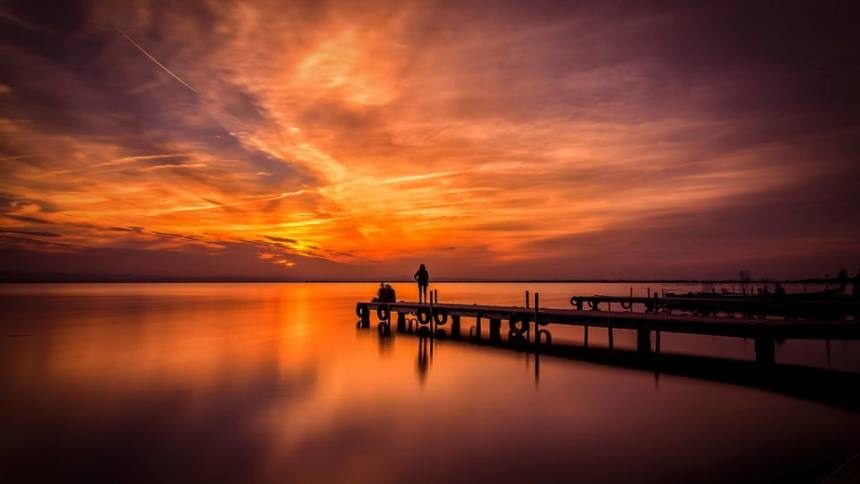
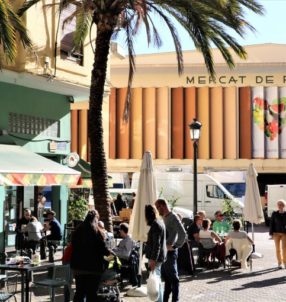
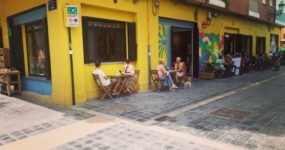
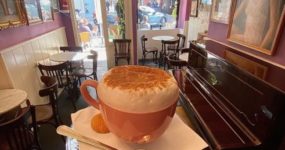

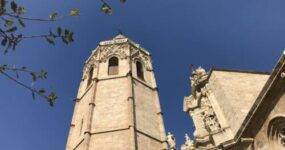

















Leave a comment